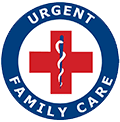Sexually Transmitted Diseases (STDs) need immediate medical evaluation and treatment. Not only can they lead to serious medical complications, but you are exposing your sexual partner to risk of infection.
Most STDs can be cured or managed if treatment is begun early. Left untreated, some STDs can cause infertility, chronic pain, arthritis, damage to the nervous system, and increased susceptibility to HIV (AIDS).
Urgent Family Care in Knoxville Tennessee provides discreet and confidential testing for STDs including:
- Chlamydia
- Gonorrhea
- HIV (AIDS)
- Syphilis
- Herpes
- Hepatitis B
- Hepatitis C
- Trichomoniasis
STD Symptoms
Many people who have STDs do not have symptoms, or experience them only after several weeks or months have passed. You should get tested if you suspect you have been exposed to an STD, or if you have any of the following symptoms:
- Rash or sores on your private parts
- Discharge
- Frequent and painful urination
- Bumps or warts on your private parts
- Sore throat or swollen glands
- Itching
- Fatigue
- Vomiting
- Dark colored urine
- Light colored stools
- Abdominal pain
- Vaginal bleeding
STD Testing
STD testing may include a physical exam, the drawing of a blood sample, a mouth swab to collect saliva and tissue samples, and a urine sample.
Some test results are available immediately; others might take a few days. You will be informed of the results as soon as they are available.
STD testing is covered by most health insurance.
STD Treatment
Treatment for STDs is available at Urgent Family Care in Knoxville.
Our doctors will begin treatment as soon as a positive STD diagnosis is made. Urgent Family Care provides counseling to help you manage an STD and protect yourself and your partner from exposure to infection.
Do not wait to be tested. If you suspect you or your partner has an STD, come in for testing today.
For information about HIV/AIDS, see Centers for Disease Control: HIV Basics.
